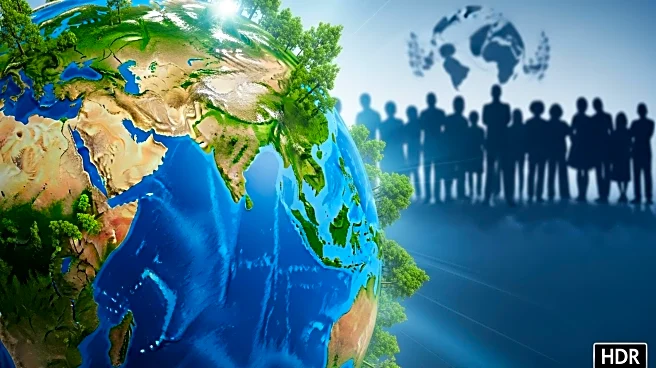What is the story about?
What's Happening?
Over 110 world leaders are gathering at a U.N. climate summit to push for stronger national commitments to reduce carbon emissions. Despite the urgency, only 47 out of 195 nations have submitted their updated plans, which are crucial for assessing global progress in emission reduction. The summit aims to address the slow pace of action and insufficient efforts in combating climate change. Business leaders are also participating in conferences focused on promoting cleaner energy solutions. The U.S. has been criticized for its significant rollback in climate policies, contrasting with global efforts to switch to renewable energy sources.
Why It's Important?
The summit highlights the critical need for global cooperation in addressing climate change, a pressing issue affecting economies, societies, and ecosystems worldwide. The U.S.'s policy rollback poses challenges to international efforts, potentially hindering progress. However, the shift towards renewable energy, driven by economic incentives, offers hope for sustainable development. The summit serves as a platform for vulnerable nations, like small island states, to advocate for stronger actions, emphasizing the disproportionate impact of climate change on their communities.
What's Next?
Following the summit, nations are expected to finalize and submit their updated climate action plans. The U.N. General Assembly may consider resolutions to enforce stronger climate obligations, particularly for countries lagging in their commitments. The upcoming climate negotiations in Brazil will be crucial in determining the next steps for global climate policy. Stakeholders, including political leaders and businesses, will likely continue to push for accelerated transitions to renewable energy.
Beyond the Headlines
The summit underscores the ethical responsibility of nations to address climate change, particularly those contributing significantly to global emissions. The legal implications of international climate agreements may become more pronounced, with potential enforcement mechanisms being discussed. Culturally, the summit reflects a growing awareness and demand for sustainable practices, influencing public policy and consumer behavior.















